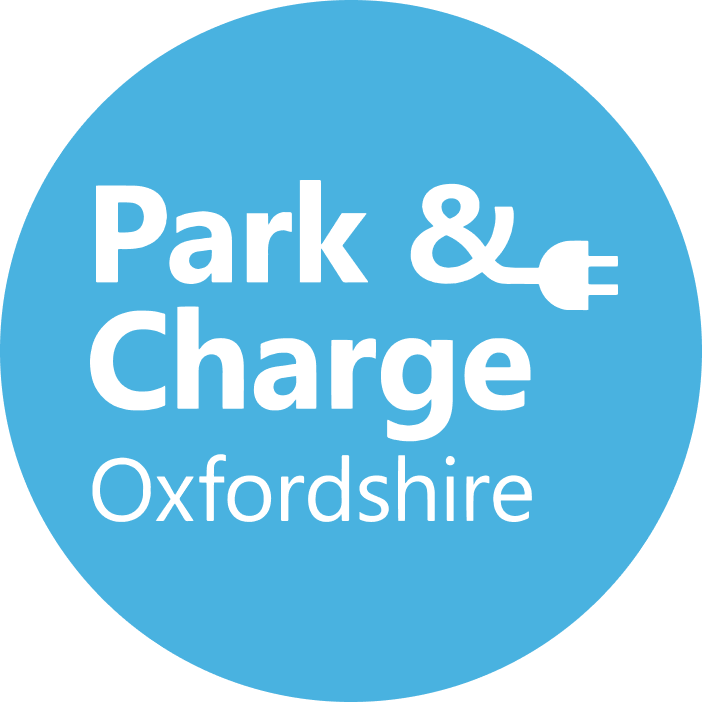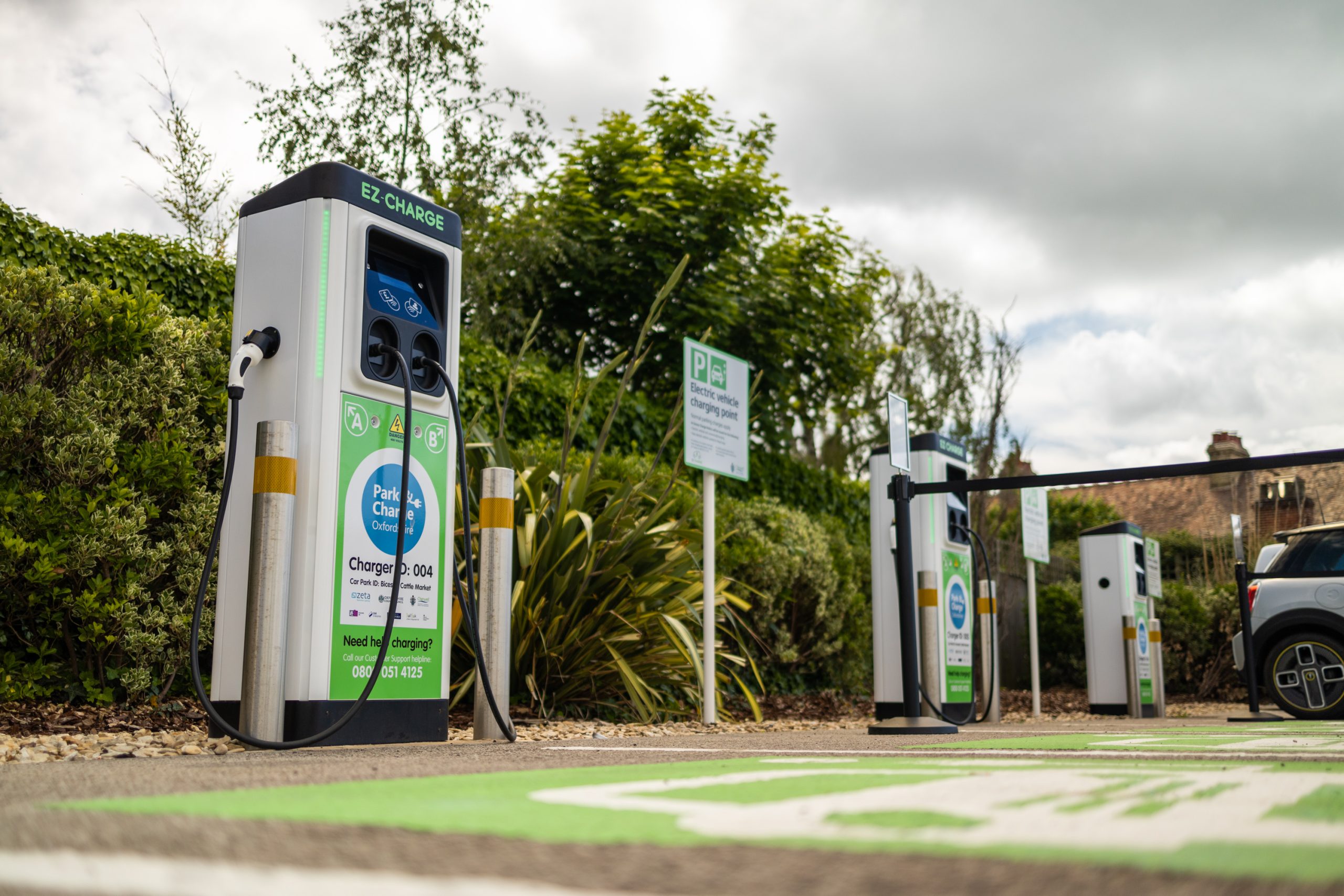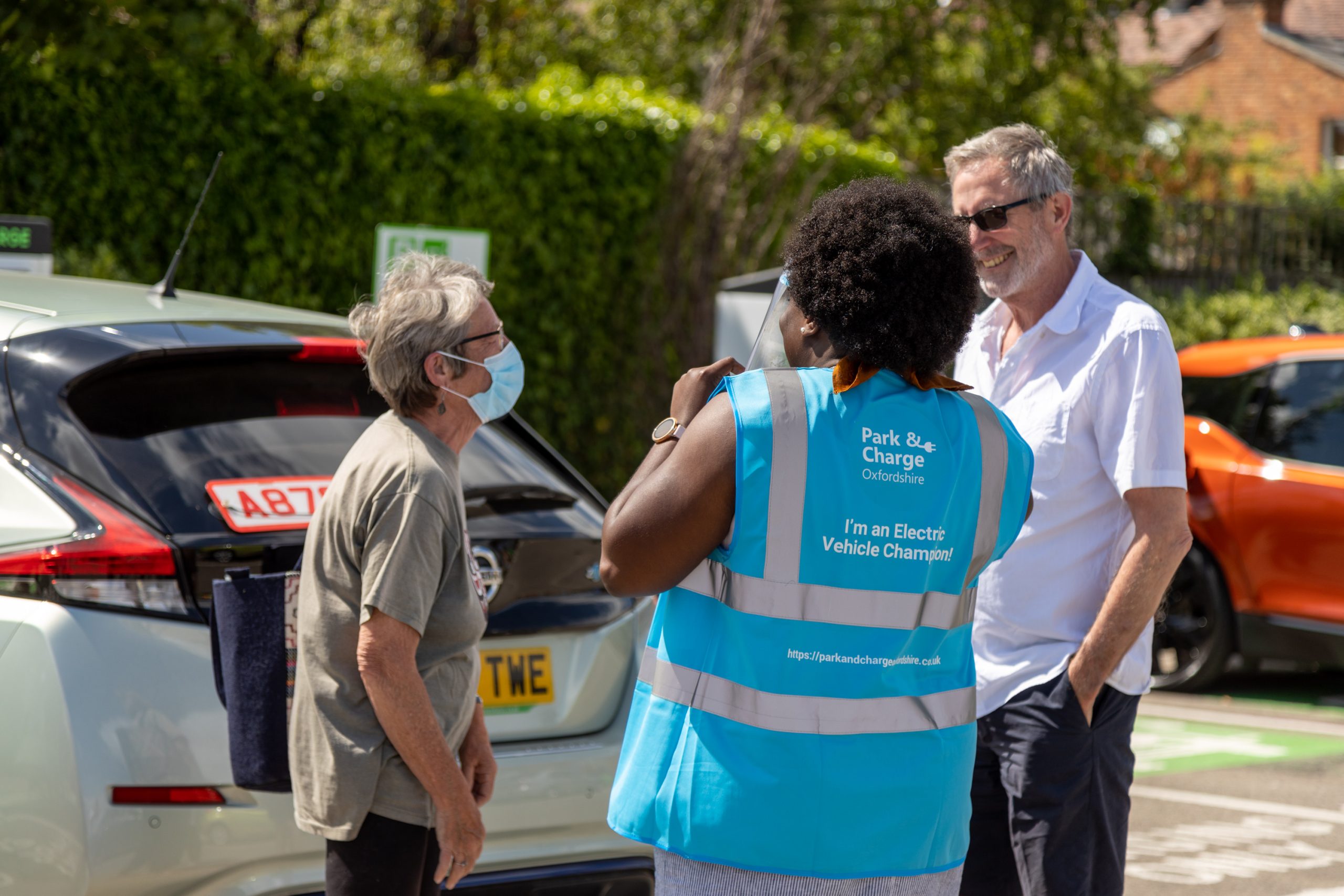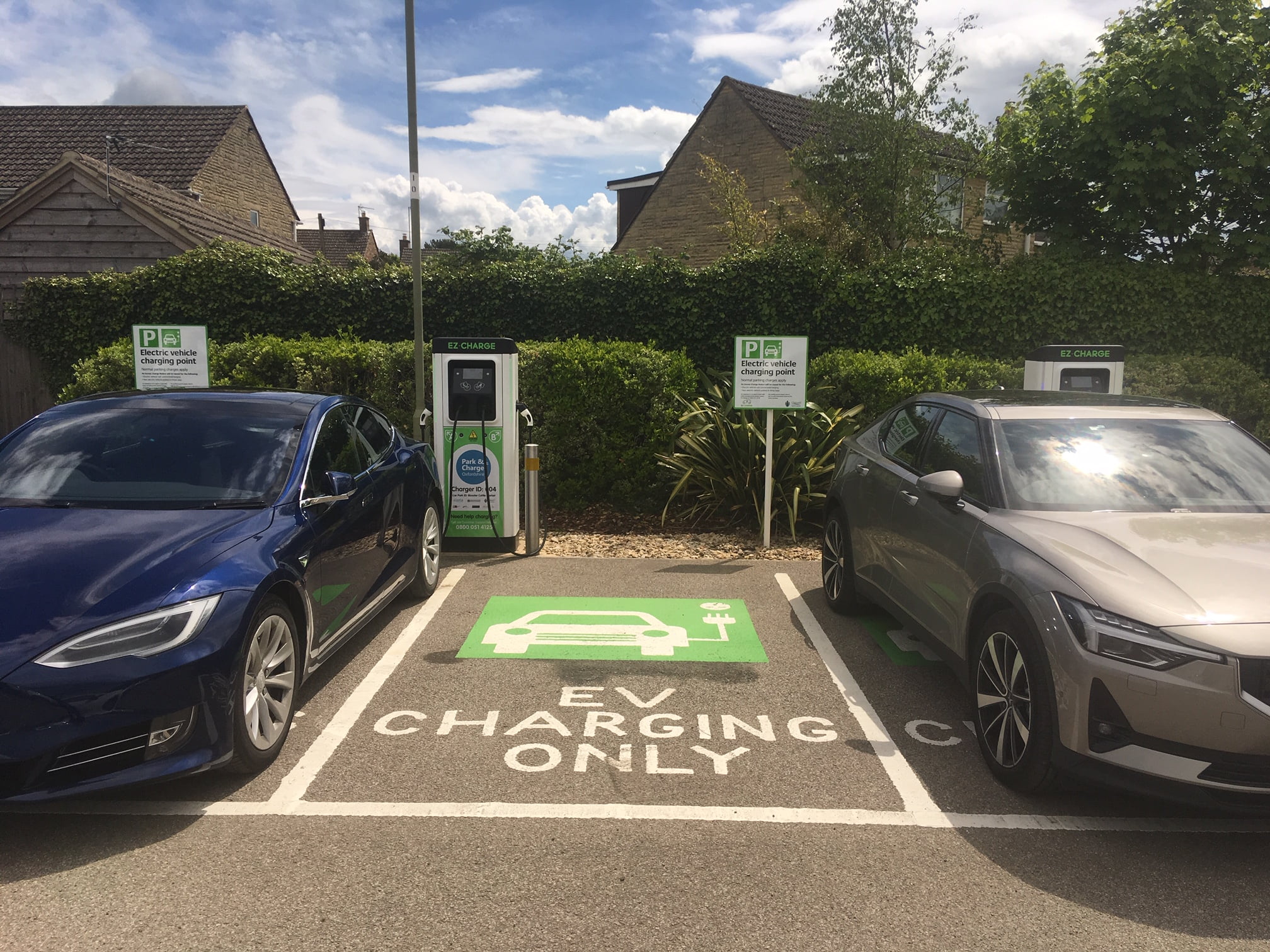Approximately a third of households in Oxfordshire live in terraced properties in urban centres and historic market towns. Many of these residents rely on on-street parking and are unable to install a private home chargepoint.
Park and Charge Oxfordshire is one solution being developed by the Oxfordshire Innovation Hub to provide convenient access to public charging for these residents.
Energy Saving Trust has produced this case study in support of both the Local Government Support Programme and the Oxfordshire Park and Charge project’s goal of disseminating best practice and sharing knowledge amongst local authorities. We will also be facilitating a series of best practice electric vehicle (EV) project webinars, one of which will feature this project.







